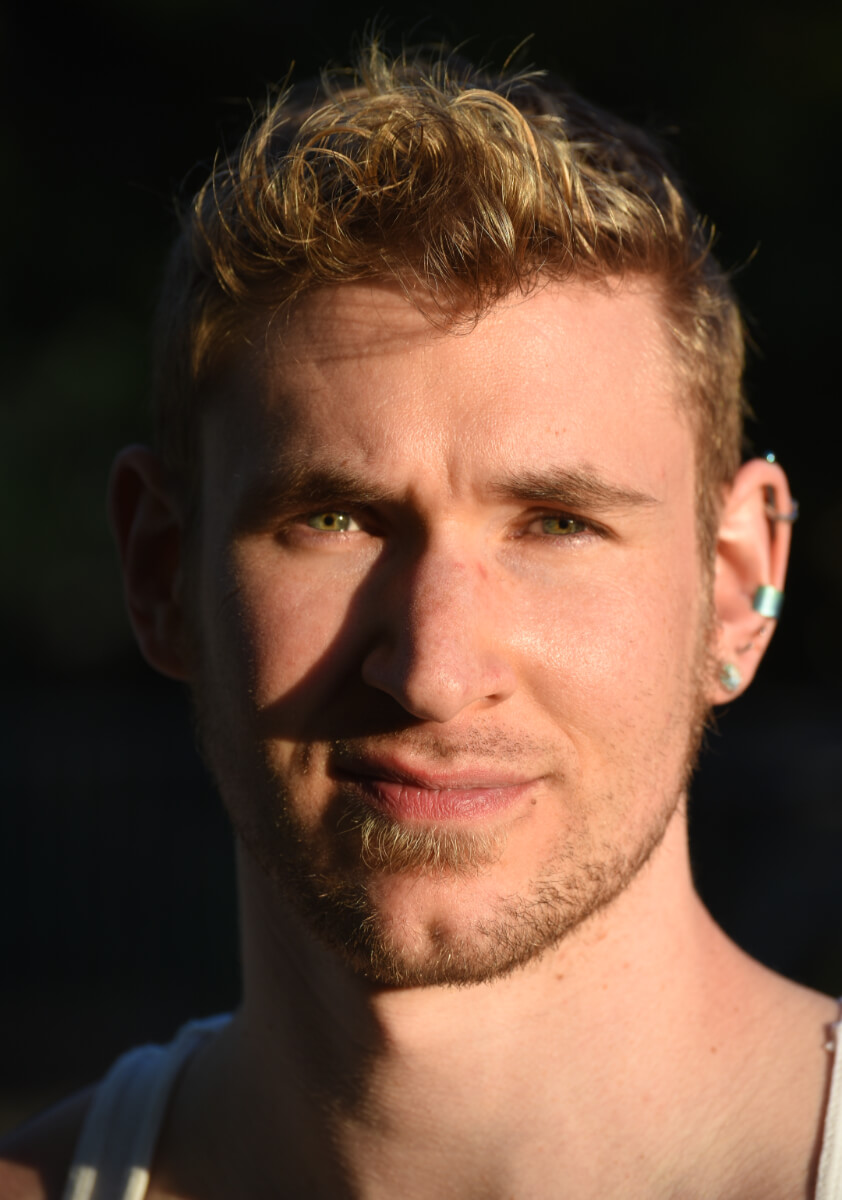Alumni Spotlight: Nick Armstrong-Crews
Nick Armstrong-Crews is a UAA College of Arts and Sciences Alumnus. Nick has dedicated his career to developing technology in self-driving cars to eradicate death caused by auto accidents. Born in Nome and raised in Fairbanks, he earned three bachelor degrees in computer science, math, and natural sciences, and went on to pursue doctoral studies in robotics at Carnegie Mellon University. He has worked in artificial intelligence for over 15 years, having worked on AI projects at NASA Ames, drone vision at MIT’s Lincoln Laboratory, hand-held 3D cameras at his startup Heuristic Labs, and mobile machine learning at Google. Currently, he is the tech lead of radar perception at Waymo, formerly known as the Google Self-Driving Car Project, and lives in California.
Nick joined us virtually to chat about his time at UAA and with the College of Arts and Sciences.

You have three degrees from UAA, including a bachelor's in computer science, natural sciences, and math. How did your educational career at UAA evolve after you started?
“I always knew I wanted to be a computer nerd. It was very lucrative, and we were very poor growing up and I said, "You know what? This is the way out." I pursued that path, but math was a truer passion of mine since I was very young. To be completely honest, I applied for grad school when I first graduated, and I wasn't pleased with the results, so I said, "You know what? I'll try this again later." But I didn't want to stop going to school in the meantime. I really enjoyed going to UAA. I had a lot of academic freedom, and there was always more to learn. I felt very comfortable there as opposed to going to a new city and a new school. I was a little bit of a big fish in a small pond, and I liked that.”
You have a very interesting sounding career. Can you talk a little bit about what you do and what you've done since you've left UAA?
“After I left UAA, I went to grad school in Pittsburgh at Carnegie Mellon for a PhD in robotics, which was the only robotics PhD program in the world, so that was a fun and unique distinction. During my time at Carnegie Mellon, I believe I did nine internships, some at IBM, Microsoft Research, NASA Ames and MIT Lincoln Laboratory. After graduate school, I landed at MIT Lincoln Laboratory for my first full-time job, which is a DoD contracting branch of MIT located on the Air Force base. I worked there for about five years, focused on robotics projects, including computer vision and drones.
After a short stint with a company I co-founded, I moved on to a role with Google. Some of my first major projects were machine learning for the Android smartphones and smartwatches, including gesture recognition. My real objective was to work on self-driving cars, but it was a highly sought after area, so I had to work my way in. I have been working in the area of self-driving cars for Google for eight years now. Our company - Waymo - is a smaller company owned by Alphabet (parent company of Google). We like to call Google our “little brother.”
How would you say your education from UAA has impacted your career trajectory?
“It was the foundation for everything that I did after graduation. You cannot skip the foundation. I am very happy with the foundation that I received at UAA. In addition to my educational experience, my personal experience was that I had a lot of freedom to pursue the things that I wanted. I had the opportunity to do some undergraduate research, which prepared me well for grad school and writing applications. There were also internship opportunities at UAA, which gave me good work experience. I worked as a computer lab manager for the computer science lab and as a result, I got to know the faculty. There were plenty of fellowships and scholarships that I could apply for and receive.
I believe that the education that I received from UAA was, and is, extremely valuable. I would put it up against any larger name school undergraduate program, and I would still go with UAA. At UAA, I received personal attention from the faculty. This is something that I don’t feel like I could have gotten at a larger institution. I could always go and talk with faculty about whatever, and they were always interested in helping me. Our class sizes were smaller, more intimate, which lent itself to the learning experience. You can't find that anywhere else.”
When you think of your time at UAA, is there anything you wish you would've done differently?
“Yes. I think that I tried to rush things sometimes; I tried to cram in too many classes at once. I know it sounds weird because I kept going back for more, but I was focused on getting out fast. That is actually how I got my first degree in three years, rather than the usual four. There were times where I crammed right before a test, and I feel that I didn't really learn. I learned enough to regurgitate concepts a couple days later, and then they were gone. Later on in my career, I encountered problems where I wished that I had actually absorbed a concept. I wish I had taken more time to really extract every last drop out of the material that was presented to me instead of doing as little as possible to sail through with good grades.”
Thank you, Nick, for taking the time to meet with us!









